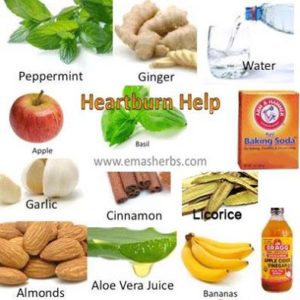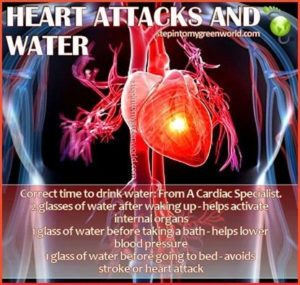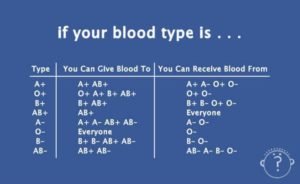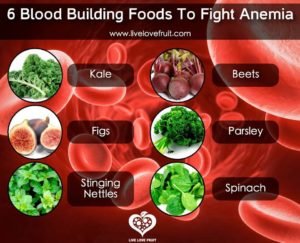 For A Stronger Heart
For A Stronger Heart
Catch some sunshine! It could protect your heart, according to a new study in Nature Medicine. A group of mice was exposed to a light box t of illumination similar to the outdoors. When researchers induced heart attacks in the mice, the light-treated rats showed signs they had been protected from heart attack–induced tissue damage. Researchers discovered when you go in the sun that heart-protective proteins (called Period 2 proteins) appear more often in your body. The light-treated mice had 4 times as many Period 2 proteins compared to mice who weren’t exposed.
Here’s how it works: When you go into cardiac arrest, your heart delivers less oxygen to the body. Period 2 proteins help your body be more efficient at using oxygen, so you can survive on less, says lead researcher Tobias Eckle, Ph.D., professor at the University of Colorado Denver.
Beet Juice for Blood Pressure
Researchers have discovered that drinking 17 ounces of beetroot juice a day can significantly reduce blood pressure. The findings could have major implications for the treatment of cardiovascular disease. It is the ingestion of dietary nitrate contained within beetroot juice — and similarly in green, leafy vegetables — which results ultimately in decreased blood pressure.
The decrease in blood pressure was due to the chemical formation of nitrite from the dietary nitrate in the juice. The nitrate in the juice is converted in saliva, by bacteria on the tongue, into nitrite. This nitrite-containing saliva is swallowed, and in the acidic environment of the stomach is either converted into nitric oxide or re-enters the circulation as nitrite. The peak time of reduction in blood pressure correlated with the appearance and peak levels of nitrite in the circulation.
Hypertension causes around 50 per cent of coronary heart disease, and approximately 75 per cent of strokes. Nitrate is likely to underlie the cardio-protective effect of a vegetable-rich diet. Drinking beetroot juice, or consuming other nitrate-rich vegetables, might be a simple way to maintain a healthy cardiovascular system, and may be an additional approach in the modern day battle against rising blood pressure.
Blood Pressure Lowering Juice
2 Stalks of Celery
1/2 beet
2 Carrots
1/2 green apple
lemon
Juice all ingredients and enjoy.
Health benefits of celery juice – Balances body’s blood pH, neutralizing acidity. Acts as the perfect post-workout tonic as it replaces lost electrolytes and rehydrates the body with its rich minerals. Celery is known to contain at least eight families of anti-cancer compounds. Among them are the acetylenics that have been shown to stop the growth of tumor cells. Phenolic acids which block the action of prostaglandins that encourage the growth of tumor cells. And coumarins which help prevent free radicals from damaging cells. The phytochemical coumarins prevent the formation and development of the colon and stomach cancers. This humble pale juice has been shown to effectively and significantly lower total cholesterol and LDL (bad) cholesterol. The natural laxative effect of celery helps to relieve constipation. It helps relax nerves that have been overworked by man-made laxatives. The potassium and sodium in celery juice helps to regulate body fluid and stimulate urine production, making it an important help to rid the body of excess fluid. The polyacetylene in celery is an amazing relief for all inflammation like rheumatoid arthritis, osteoarthritis, gout, asthma and bronchitis. Kidney function: Celery promotes healthy and normal kidney function by aiding elimination of toxins from the body. While eliminating toxins, it prevents formation of kidney stones. Lower blood pressure: Drinking celery juice every day for a week significantly helps lower blood pressure. A compound called phtalides help relax the muscle around arteries, dilating the vessels and allowing blood to flow normally. To be effective, drink the juice for one week, stop for three weeks, and start over.

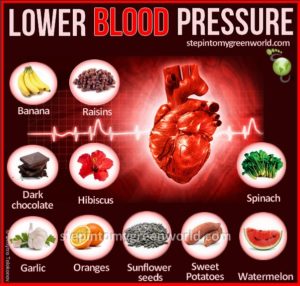
Food for the Heart:
Cranberries Researchers found that men who drank 3 cups of cranberry juice daily raised their HDL (the good kind) cholesterol levels by 10 percent, which in turn lowered their risk of heart disease by 40 percent. Plant compounds called polyphenols are believed to be responsible for the effect.
Whole Grains At Tulane University, researchers found that people who ate 4 or more servings of whole grains a week had a 22 percent lower risk of developing heart disease than those who ate the foods once a week or less.
Grapefruit Eating one grapefruit each day can lower your total cholesterol and LDL levels by 8 and 11 percent, respectively, lowering your risk of heart disease and providing you with more than 150% of your daily-recommended vitamin C.
Water Researchers found that drinking 5 or more 8-ounce glasses of water a day could lower the risk of heart disease up to 60 percent— the same drop you get from stopping smoking, lowering your LDL cholesterol number, exercising, or losing a little weight. Replace half of what you drink with water and you’ll save 23 pounds per year!
Fish Omega-3 fats in tuna and other fish and flaxseed help strengthen the heart muscle, lower blood pressure, prevent over clotting, and reduce the level of potentially deadly inflammation in the body.
Fruits high in vitamin C, like oranges and pineapple: According to research from England, people with the most vitamin C in their bloodstreams are 40 percent less likely to die of heart disease.
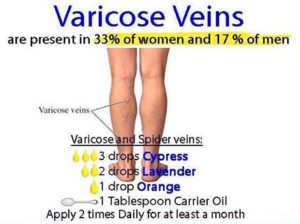
Relieve and Prevent Varicose Veins:
Lose weight. Eat low-fat foods and add more fruits and vegetables to your diet. Drink green juices that are alkalizing and improve blood circulation. Drink LOTS of water daily.
Foods That Help: Green vegetables, cherries, blueberries, blackcurrants, blackberries, cranberries, kiwifruits, citrus fruits, bell peppers, pineapple, beetroot, whole grains.
Juice Recipe:
½ medium-sized beetroot
½ small pineapple
2 ribs celery
½ yellow bell pepper
¼ lemon
½-inch ginger root
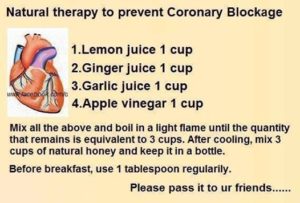
Top 6 Foods That Can Naturally Unclog Arteries
Your arteries continually transport essential nutrients and oxygen one needs from the heart to the rest of your body. Here are 6 natural foods that will help cleanse and unclog arteries and help prevent a heart attack or stroke:
Organic Asparagus “Asparagus works within the 100,000 miles of veins and arteries to release pressure, thereby allowing the body to accommodate for inflammation that has accumulated over the years.” says Shane Ellison, an organic chemist and author of Over-The-Counter Natural Cures. It helps ward off deadly blood clots.
Organic Pomegranate “Pomegranate contains phytochemicals that act as antioxidants to protect the lining of the arteries from damage”, explains Dr. Gregg Schneider, a nutritionally oriented dentist and expert on alternative medicine.
Turmeric “The spice turmeric is a powerful anti-inflammatory,” Dr. Schneider says. “It contains curcumin which lowers inflammation—a major cause of arteriosclerosis (hardening of the arteries.)”
Spirulina A daily 4,500 mg dose of this algae helps relax the artery walls and normalize blood pressure. It could help your liver balance your blood fat levels.
Organic Cranberries are potassium-rich and can help reduce cholesterol levels. Regular consumption may help reduce your overall risk of heart disease by up to 40 percent.
Organic Watermelon A Florida State University study found that people given a 4,000 mg supplement of L-citrulline (an amino acid found in watermelon) lowered their blood pressure in just six weeks. Researchers say the amino acid helps your body produce nitric oxide, which helps widen blood vessels.
Natural therapy for opening the veins of the heart:
1 cup lemon juice
1 cup ginger juice
I cup garlic juice
1 cup organic Apple vinegar
Mix all above and boil gently til it is 3 cups. Remove from heat and cool. Mix with 3 cups natural honey and store in glass bottle. Take one tbl daily before breakfast. Blockage from veins disappears slowly.

